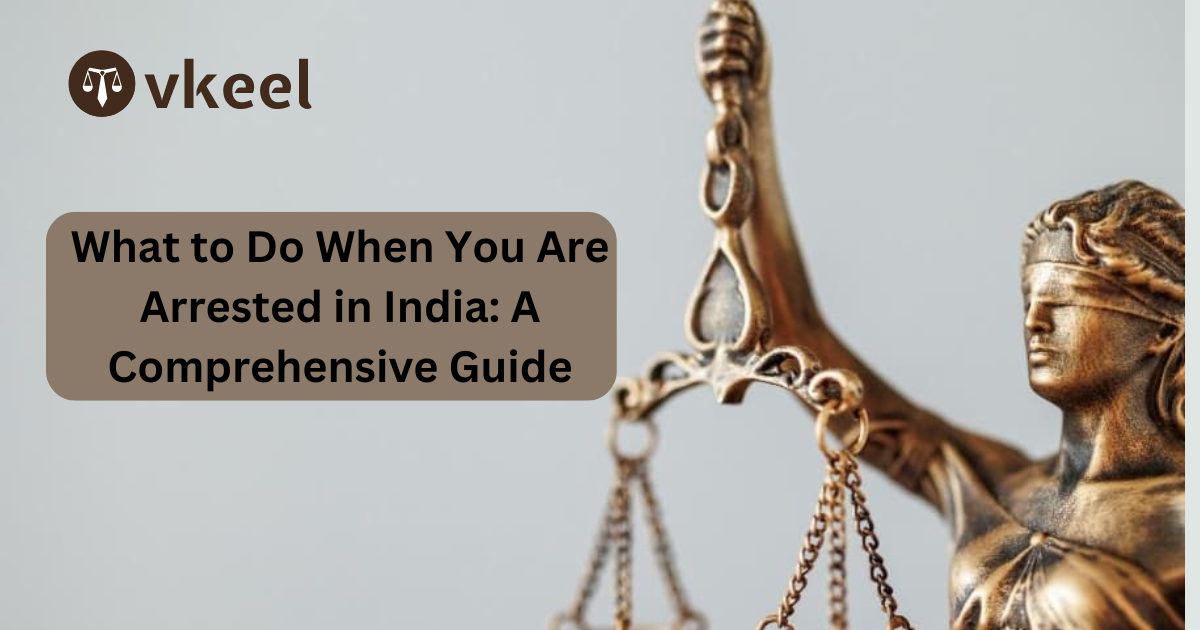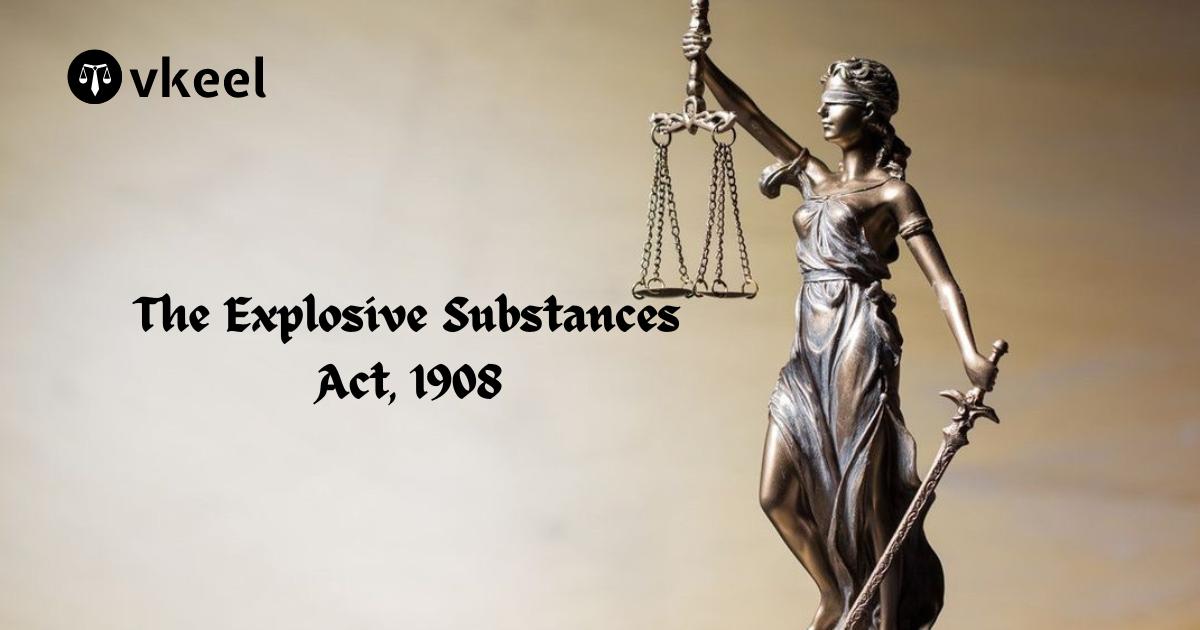What to Do When You Are Arrested in India: A Comprehensive Guide
By Himanshu Kumar
Table of Contents
Introduction
Being arrested can be a bewildering and frightening experience. Understanding your rights and the proper procedures can significantly impact the outcome of your situation.
The primary purpose of arrest is to ensure that an individual suspected of committing a crime is brought under the control of law enforcement authorities to facilitate the administration of justice. Arrest serves to prevent the suspect from fleeing, tampering with evidence, or committing further offenses. It enables the police to maintain public order and safety by temporarily restricting the liberty of individuals who pose a potential threat to society. By taking a suspect into custody, law enforcement can conduct a thorough investigation and gather evidence necessary for prosecuting the case in court.
Understanding Arrest in India
An arrest is a procedure where an individual is taken into custody by law enforcement officials to answer a criminal charge or to prevent the commission of a crime. The Criminal Procedure Code (CrPC) governs the process of arrest in India. Various safeguards are enshrined in the Indian Constitution and statutory laws to protect the rights of arrested individuals.
Rights of an Arrested Person
The rights of an arrested person in India are primarily derived from the Constitution and various provisions of the CrPC:
- Right to Be Informed of Grounds of Arrest: Article 22(1) of the Indian Constitution mandates that an arrested person must be informed of the grounds of arrest. This is also reflected in Section 50 of the CrPC.
- Right to Legal Counsel: Article 22(1) guarantees the right to consult and be defended by a legal practitioner of one’s choice.
- Right to Be Produced Before a Magistrate: Section 57 of the CrPC mandates that the arrested person must be produced before a magistrate within 24 hours of arrest, excluding travel time.
- Right to Silence: An arrested person has the right to remain silent as per the right against self-incrimination under Article 20(3) of the Constitution.
- Right to Bail: Depending on the nature of the offense (bailable or non-bailable), an arrested person has the right to seek bail.
- Right Against Arbitrary Detention: Article 21 guarantees the right to life and personal liberty, ensuring protection against arbitrary detention.
Steps to Take When Arrested
1. Stay Calm and Composed
When arrested, it is crucial to remain calm and not resist arrest physically. Resisting arrest can lead to additional charges and complications. Politely ask for the reasons for your arrest and the legal basis for the same.
2. Know Your Rights
Understanding your rights can help you navigate the arrest process more effectively. Ensure that you are informed of the grounds of arrest and request to contact a lawyer. If you do not know a lawyer, you can request the police to provide you with a legal aid lawyer.
3. Request to Contact a Family Member or Friend
Inform the arresting officers that you would like to notify a family member or friend about your arrest. This can ensure that someone is aware of your situation and can take necessary steps, such as arranging legal representation.
4. Exercise Your Right to Remain Silent
You have the right to remain silent. It is advisable not to answer any questions or sign any documents without the presence of your lawyer. Anything you say can be used against you in court.
5. Insist on Legal Representation
Immediately ask for legal representation. If you cannot afford a lawyer, you have the right to free legal aid. Having a lawyer present during questioning can protect you from coercion and ensure that your rights are upheld.
6. Ensure You Are Produced Before a Magistrate
The police must produce you before a magistrate within 24 hours of your arrest. This is a crucial safeguard against illegal detention. If this does not happen, your lawyer can file a habeas corpus petition in the High Court or the Supreme Court.
Case Laws Supporting Rights of Arrested Persons
1. D.K. Basu v. State of West Bengal (1997)
This landmark judgment laid down specific guidelines to be followed by police officers during arrest and detention:
- The police must wear visible and clear identification and name tags with their designations.
- A memo of arrest must be prepared at the time of arrest, attested by at least one witness.
- The arrested person should be examined for any signs of injury at the time of arrest and a record should be maintained.
- The arrested person is entitled to meet their lawyer during interrogation.
2. Joginder Kumar v. State of Uttar Pradesh (1994)
The Supreme Court in this case highlighted the necessity of arrests and emphasized that no arrest should be made in a routine manner. The decision to arrest should be based on a reasonable belief of the commission of a cognizable offense.
3. Maneka Gandhi v. Union of India (1978)
This case expanded the interpretation of Article 21 (Right to Life and Personal Liberty) of the Indian Constitution. The Supreme Court held that the procedure established by law for depriving an individual of personal liberty must be just, fair, and reasonable.
Recent Amendments and Legislative Changes
1. Amendments to the Criminal Procedure Code (CrPC)
Recent amendments to the CrPC aim to enhance the protection of arrested persons and streamline the arrest procedures:
- CrPC (Amendment) Act, 2008: This amendment introduced several important changes, including the provision for mandatory bail for offenses punishable with less than seven years of imprisonment, subject to certain conditions.
- Section 41A CrPC: Introduced to mandate that police issue a notice of appearance instead of arresting an individual accused of an offense punishable with imprisonment for a term which may be less than seven years.
2. Juvenile Justice (Care and Protection of Children) Act, 2015
This act provides special procedures and protections for the arrest and detention of juveniles. It ensures that children in conflict with the law are treated in a manner that ensures their well-being and rehabilitation.
3. Protection of Women from Domestic Violence Act, 2005
This act provides specific protections and procedures for the arrest of individuals accused of domestic violence, ensuring that the rights of women victims are safeguarded.
Practical Tips and Precautions
1. Keep a Copy of Important Documents
Ensure that you have copies of important documents like your identity proof, contact details of a lawyer, and any medical records. This can be helpful during the arrest process.
2. Memorize Key Contact Information
Memorize the contact details of family members, friends, and a lawyer. This can be crucial in case you are not allowed to access your phone during the initial hours of arrest.
3. Document the Arrest
If possible, try to note down or remember the details of the arrest, such as the names and badge numbers of the arresting officers, the time and place of arrest, and any witnesses present. This information can be useful for your lawyer.
4. Seek Medical Attention if Needed
If you are injured or in need of medical attention, request the police to arrange for a medical examination. The police are obligated to provide medical assistance to an arrested person.
5. Be Aware of Police Misconduct
While most police officers perform their duties ethically, there can be instances of misconduct. If you face any form of coercion, abuse, or illegal detention, inform your lawyer and document these incidents as thoroughly as possible.
Conclusion
Navigating an arrest can be daunting, but being aware of your rights and the legal procedures can make a significant difference. The Indian legal system provides various safeguards to ensure that the rights of arrested individuals are protected, and understanding these rights is crucial for anyone facing an arrest.
This article has outlined the steps to take when arrested, supported by key case laws and recent amendments to the legal framework. By staying calm, exercising your rights, and seeking legal representation, you can effectively navigate the arrest process and protect your interests.
Remember, the legal system is designed to uphold justice and fairness, and being informed is your first line of defense in ensuring that these principles are applied in your case.
Disclaimer:
The information provided in the article is for general informational purposes only, and is not intended to constitute legal advice or to be relied upon as a substitute for legal advice. Furthermore, any information contained in the article is not guaranteed to be current, complete or accurate. If you require legal advice or representation, you should contact an attorney or law firm directly. We are not responsible for any damages resulting from any reliance on the content of this website.







